The parties left my office much later in the afternoon than I would have foreseen in the morning. As I was accompanying them to the exit, the package was already attending me on the front desk: It was the very typewriter I am now writing this blog on. As I was unpacking it, I was wondering how difficult it would be to draft the settlement agreement using such machine, being deprived of all possibilities of automatic changes, spelling check, auto-corrections, ctr+c and ctr+x and other comforts of 21st century…
Read the first Kluwer Mediation Blog post ever written on a typewriter. Do not panic, the digital version follows.
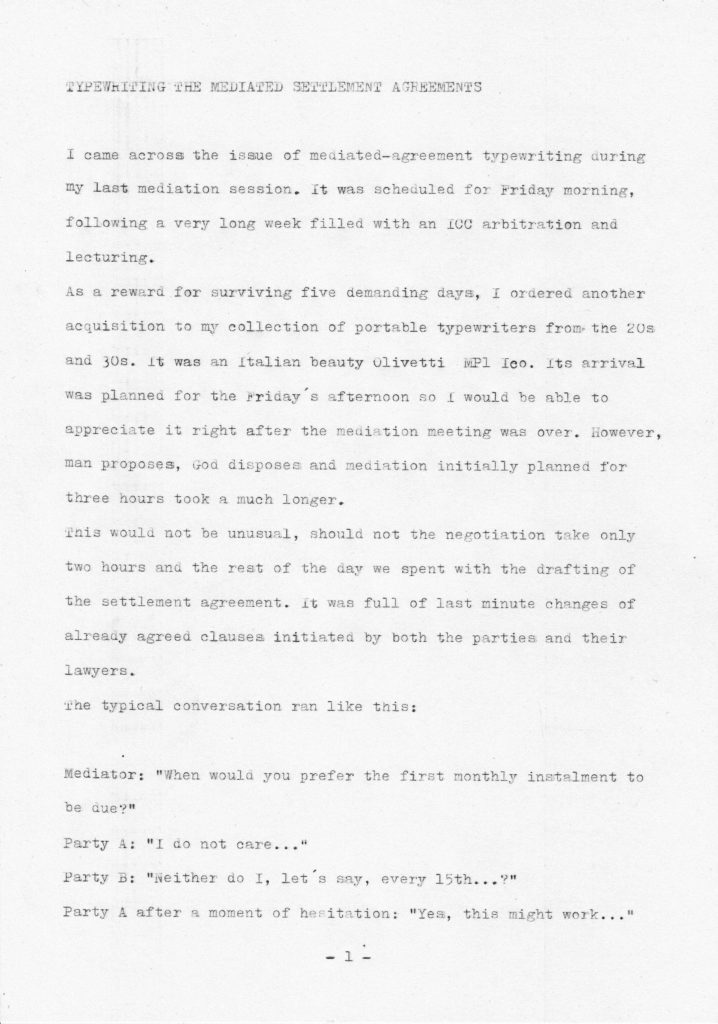
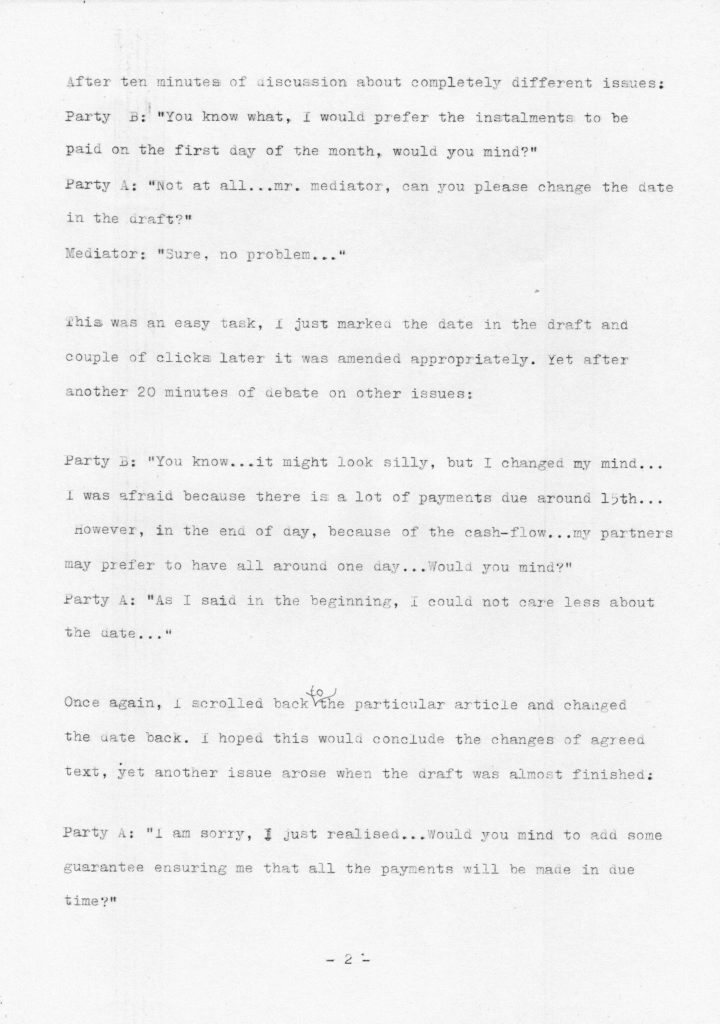
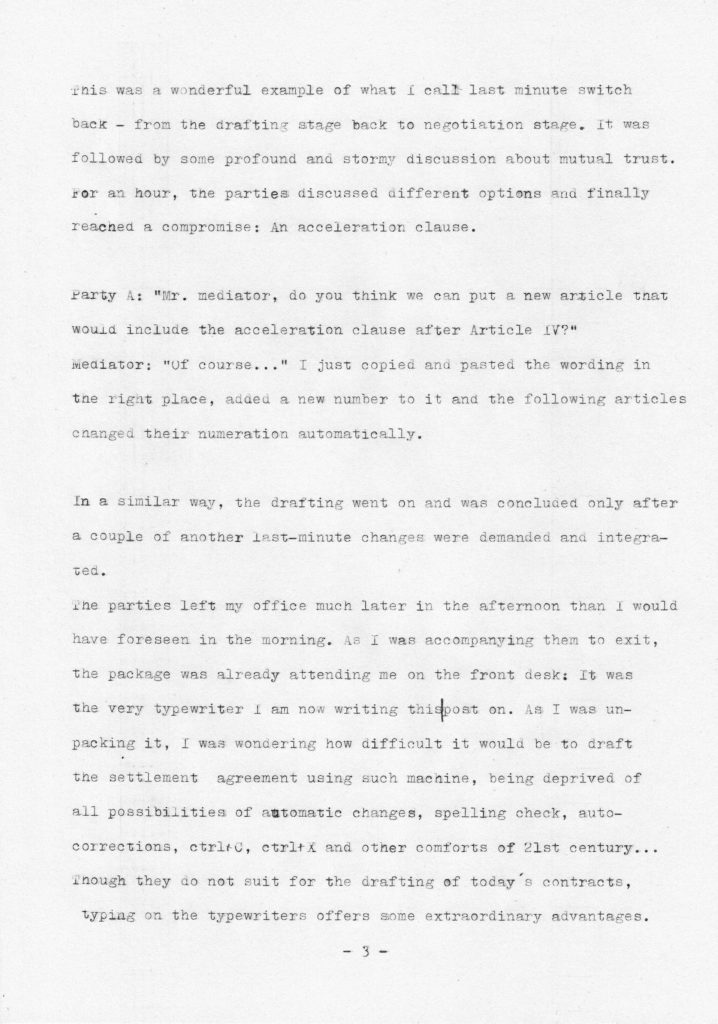
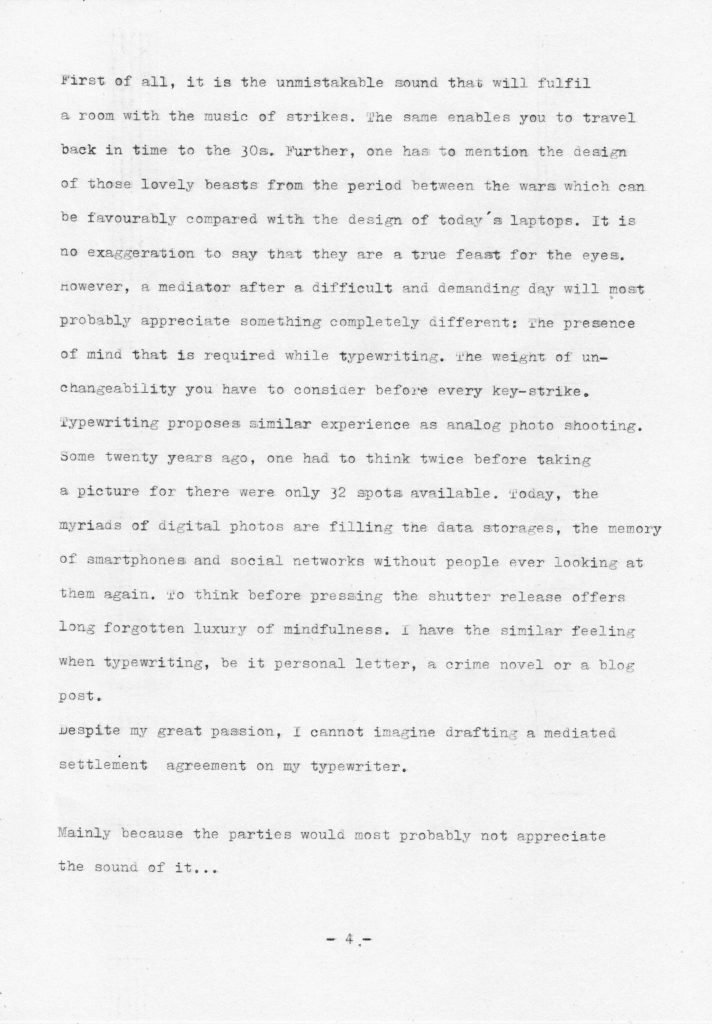
Reward for mediator
I came across the issue of mediated agreements typewriting during my last mediation session.
It was scheduled for Friday morning, following a very long week filled with ICC arbitration and lecturing.
As a reward for surviving five demanding days, I ordered another acquisition to my collection of portable typewriters from the 20s and 30s – an Italian beauty Olivetti MP1 Ico. Its arrival was planned for the Friday’s afternoon so I would be able to appreciate it right after the mediation meeting was over. However, man proposes, God disposes and mediation initially planned for three hours took a much longer.
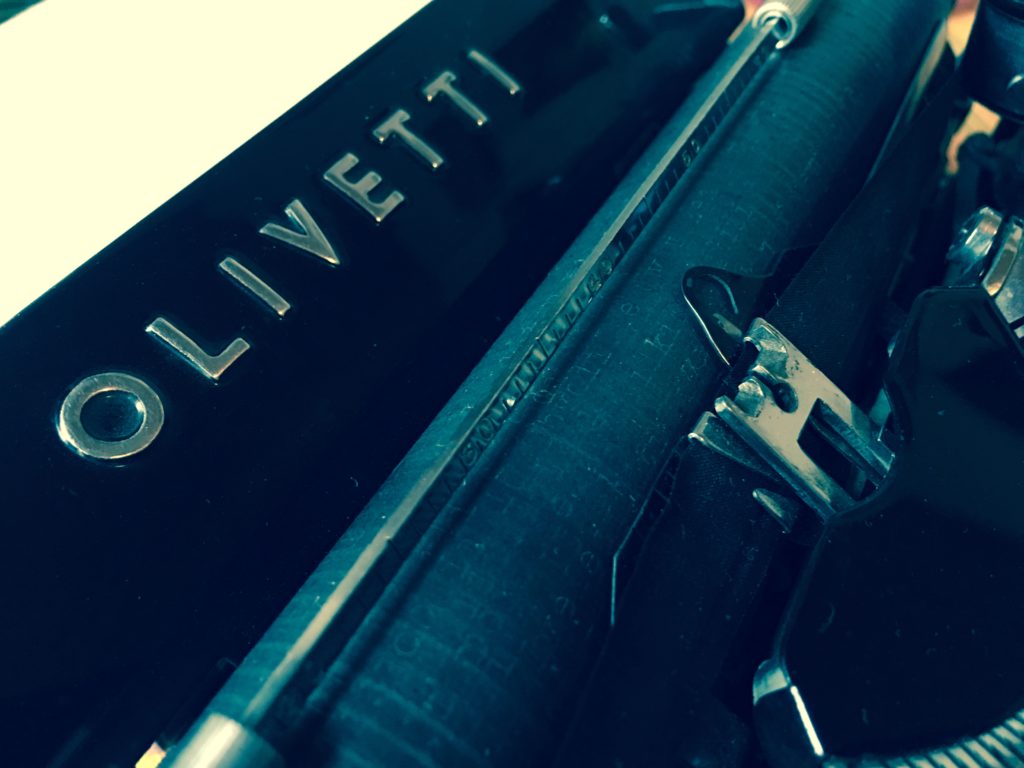
This would not be unusual, should not the negotiation take only two hours and the rest of the day we spent with the drafting of the settlement agreement. It was full of last minute changes of already agreed clauses initiated by both the parties and their lawyers.
The typical conversation ran like this:
Mediator: “When would you prefer the first monthly instalment to be due?”
Party A: “I do not care.”
Party B: “Neither do I, let’s say, every 15th?”
Party A after a moment of hesitation: “Yes, this might work…”
After ten minutes of discussion about completely different issues:
Party B: “You know what, I would prefer the instalments to be paid on the first day of the month, would you mind?”
Party A: “Not at all…Mr. mediator, can you please change it in the draft…?”
Mediator: “Sure no problem…”
This was an easy task, I just marked the date in the draft and couple of clicks later it was amended appropriately.
Yet after another 20 minutes of debate on other issues:
Party B: “You know…It might look silly, but I changed my mind… I was afraid because there is a lot of payments due around 15th…However, in the end of the day, because of the cash-flow… my partners may prefer to have all around one day… Would you mind?”
Party A: “As I said in the beginning, I could not care less about the date…”
Once again, I scrolled back to the particular article and changed the date back. I hoped this would conclude the changes of agreed text, yet another issue arose when the draft was almost finished:
Party A: “I am sorry, I just realised…Would you mind to add some guarantee ensuring me that all the payment will be made in due time?”
Last-minute demands
This was a wonderful example of what I call last minute switch-back from drafting stage back to negotiation stage. It was followed by some profound and stormy discussion about mutual trust. For an hour, the parties discussed different options and finally reached a compromise: An acceleration clause.
Party A: “Mr. mediator, do you think we can put a new article that would include the acceleration clause after Article IV?”
Mediator: “Sure, no problem…” I just copied and pasted the wording in the right place, added a new number to it and the following articles changed their numeration automatically.
In a similar way, the drafting went on and was concluded only after a couple of another last-minute-changes were demanded and integrated.
The parties left my office much later in the afternoon than I would have foreseen in the morning. As I was accompanying them to the exit, the package was already attending me on the front desk: It was the very typewriter I am now writing this blog on. As I was unpacking it, I was wondering how difficult it would be to draft the settlement agreement using such machine, being deprived of all possibilities of automatic changes, spelling check, auto-corrections, ctr+c and ctr+x and other comforts of 21st century…
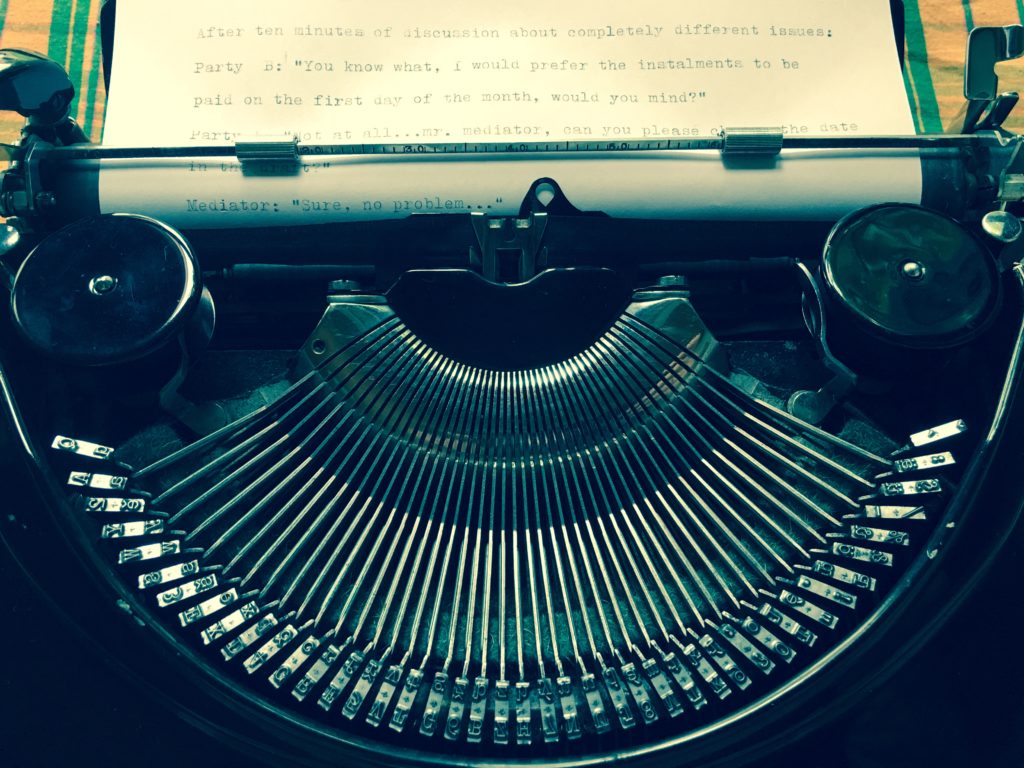
Drafting agreements in spirit of 30s
Though they do not suit for the drafting of today’s contracts, typing on the typewriters offers some extraordinary advantages. First of all, it is the unmistakable sound that will fulfil a room with the music of strikes. The same enables you to travel back in time to the 30s. Further, one has to mention the design of those lovely beasts from the period between the wars which can be favourably compared with the design of today’s laptops. It is no exaggeration to say that they are a true feast for the eyes.
However, a mediator after a difficult and demanding day will most probably appreciate something completely different: The presence of mind that is required while typewriting. The weight of unchangeability you have to consider before every keystroke. Typewriting proposes similar experience as analog photo shooting. Some twenty years ago, one had to think twice before taking a picture for there were only 32 spots available. Today, the myriads of digital photos are filling the data storages, the memory of smartphones and social networks without people ever looking at them again. To think before pressing the shutter release offers long forgotten luxury of mindfulness. I have the similar feeling when typewriting, be it a personal letter, a novel or a blog post.
Despite my great passion, I cannot imagine drafting a mediated settlement agreement on my typewriter.
Mainly because the parties would most probably not appreciate the sound of it.
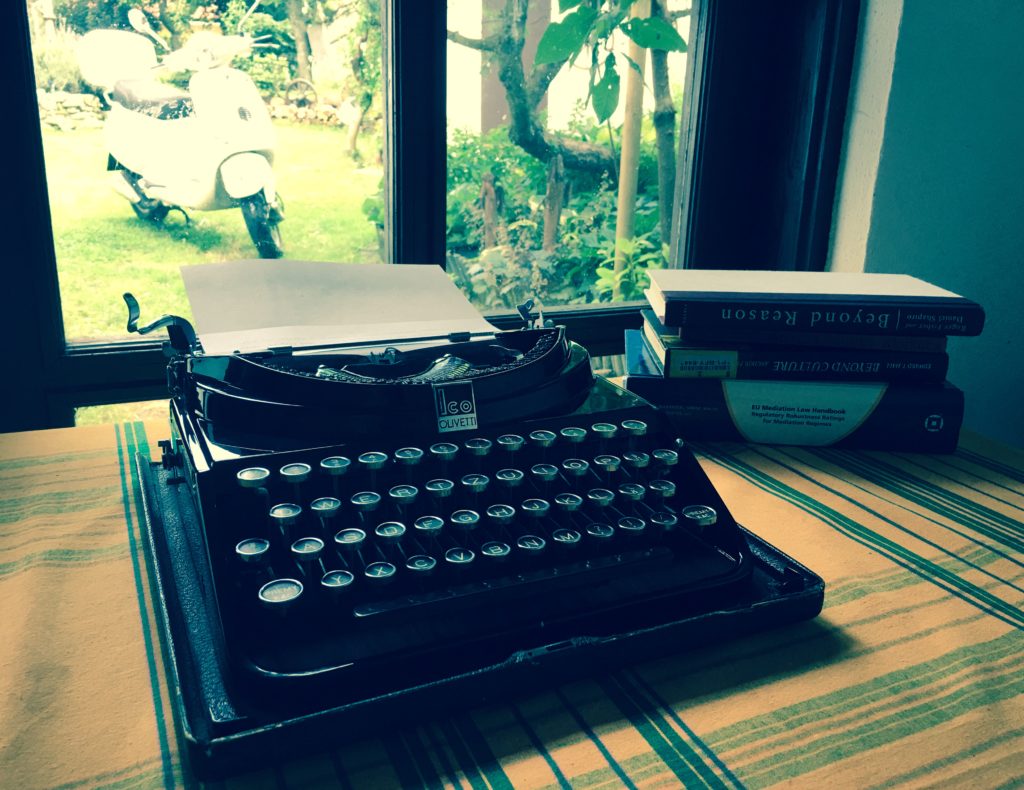
Anyway, I would be grateful if some of the more experienced mediators might give us some hints in the comments about what it was like to draft the mediated settlement agreements at the time when there were no PC and Macs…
________________________
To make sure you do not miss out on regular updates from the Kluwer Mediation Blog, please subscribe here.



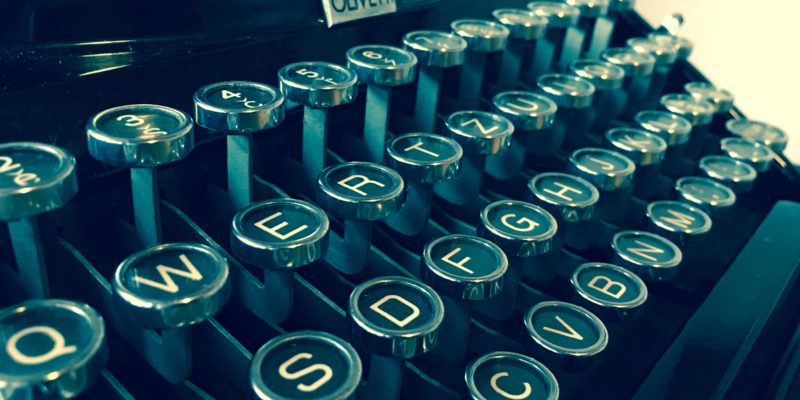
Much the same as it today when nobody has brought their lap top, or the printers are unavailable, or none of the chargers work.
Out comes the paper and a pen. And you know what ? It doesn’t take as long as amending some 20 page digital template.
And the draftsman with the pen had so much more power to control the streams of consciousness that pour from parties and lawyers tired of focusing all day.